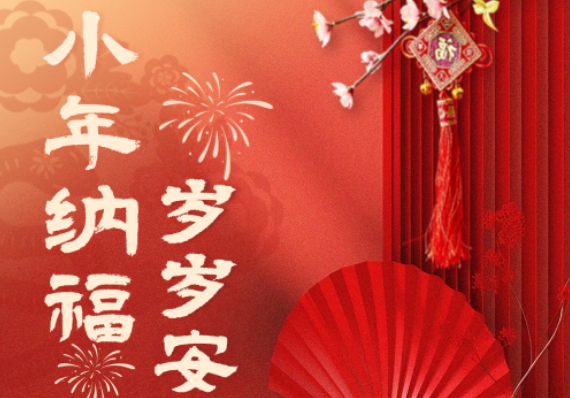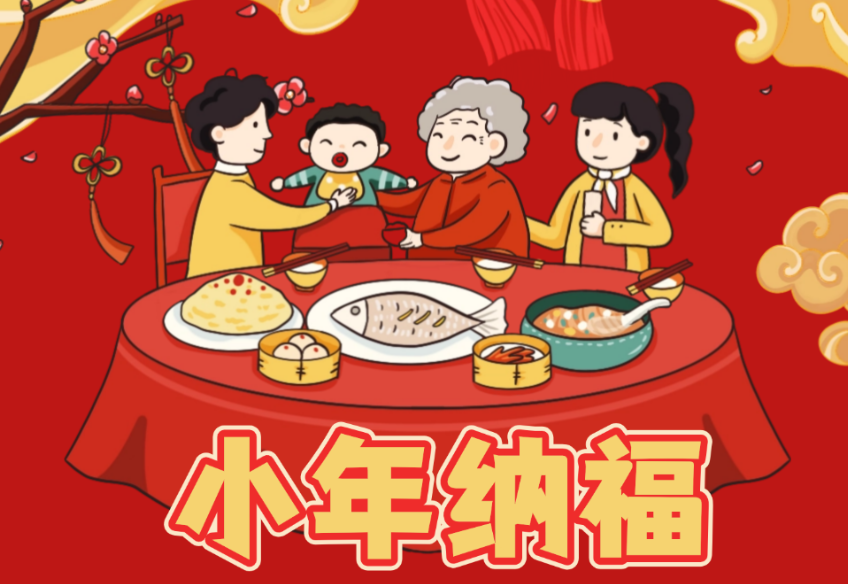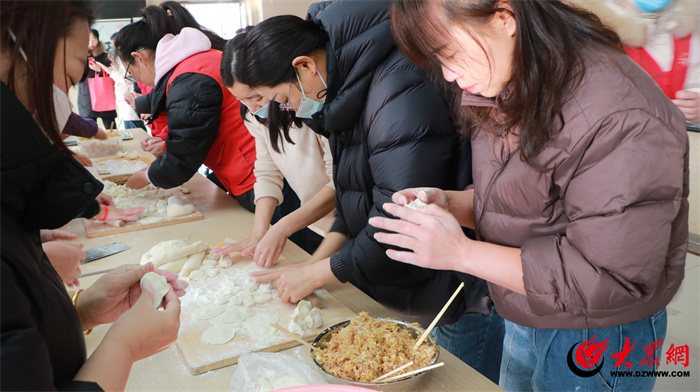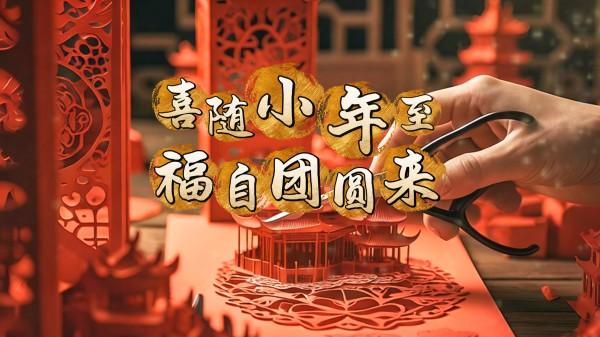文化中国行丨小年已至 大年不远
2025-01-22 00:01 海报新闻
“一碗清汤诗一篇,灶君今日上青天;玉皇若问人间事,乱世文章不值钱。”这是宋代诗人吕蒙正的一首祭灶诗。祭灶当日,又俗称“小年”,它作为农历新年的前奏,标志着除夕即将到来。 在中国,人们相信有一位名叫“灶王爷”的神灵居住在家里的灶台上,而小年这天正是其生日。过小年不仅是一段繁忙准备的开始,也是家庭团聚和祈福的重要时刻。
“A bowl of clear soup and a poem, the Kitchen God ascends to the heavens today; if the Jade Emperor asks about the affairs of the world, chaotic times make writings worthless.“ This is a poem by the Song Dynasty poet Lu Mengzheng for the Kitchen God Festival. On the day of the Kitchen God Festival, also commonly known as “Little New Year,“ it marks the prelude to the Lunar New Year, signifying the impending arrival of Chinese New Year's Eve. In China, it is believed that a deity named the “Kitchen God“ resides on the family's stove, and the Kitchen God Festival is his birthday. Celebrating Little New Year is not only the beginning of a busy period of preparation but also an important time for family reunions and blessings.
小年与灶王爷的传说
The Legend of Little New Year and the Kitchen God
传说灶王爷原为平民张生,娶妻之后败尽家业,沦落为乞丐。一天,他乞讨到了前妻郭丁香家,因羞愧一头钻到灶锅底下烧死了。感动于他最后的悔改,玉帝封他为灶王,让其每年腊月二十三或二十四上升天庭汇报这家人的善恶,在大年三十返回人间继续守护家庭。为了确保灶王爷能在天上说好话,人们会在灶王像两边贴上诸如“上天言好事,下界保平安”的对联,以此祈福求顺。
According to legend, the Kitchen God was originally a commoner named Zhang Sheng. After marrying, he squandered his family's wealth and eventually became a beggar. One day, he begged at the home of his ex-wife, Guo Dingxiang, and out of shame, he hid under the stove and died in the fire. Touched by his final repentance, the Jade Emperor appointed him as the Kitchen God, allowing him to ascend to the heavenly court on the 23rd or 24th day of the twelfth lunar month to report on the family's virtues and vices. He returns to the human world on New Year's Eve to continue protecting the household. To ensure that the Kitchen God speaks favorably in heaven, people often place couplets next to his image, such as “Speak well in heaven, protect peace on earth,“ as a way to seek blessings and smoothness.
小年到底是哪天?
When Exactly is Little New Year?
在中国,古人过小年有“官三、民四、船五”之分:北方地区多受官方文化影响,选择在腊月二十三庆祝小年;南方远离政治中心,倾向于腊月二十四过小年;而一些渔家,则会在腊月二十五过小年。
In China, there is a traditional saying about the celebration dates of Little New Year: “officials on the 23rd, commoners on the 24th, and fishing families on the 25th.“ In the northern areas, which have been more influenced by official culture, Little New Year is celebrated on the 23rd day of the twelfth lunar month.In the southern regions, which are farther from the political center, it is observed on the 24th.Meanwhile, some fishing families celebrate it on the 25th.
小年有什么习俗?
What Are the Customs of Little New Year?
祭灶王:这是小年的核心习俗之一。送灶时,人们通常会在灶王像前摆放又甜又粘的糖瓜,寓意灶君吃了之后嘴被粘住不说坏话,以求来年的平安顺遂。
Worshipping the Kitchen God: This is one of the core customs of Little New Year. When bidding farewell to the Kitchen God, people typically place sweet and sticky sugar melons in front of his image. The idea is that after eating these, his mouth will be stuck and he won't speak ill, ensuring a peaceful and smooth year ahead.
吃灶糖:这是小年祭灶必备的食物之一,一口下去,甜甜黏黏。
Eating Kitchen God’s Candy: This is one of the essential foods for the Kitchen God Festival. With each bite, it is sweet and sticky.
大扫除:从腊月二十三起至除夕止被称为“迎春日”或“扫尘日”。在此期间,家家户户都会进行一次彻底的大扫除,清除旧年的晦气,迎接新年的好运。
Spring Cleaning: From the 23rd day of the twelfth lunar month until New Year's Eve, this period is known as the “Spring Welcoming Day“ or “Dust Sweeping Day.“ During this time, every household conducts a thorough cleaning to remove the bad luck of the old year and welcome the good fortune of the new year.
剪窗花:在北方流行剪贴窗花,喜鹊登梅、燕穿桃柳等精美的窗花图案寄托了人们对未来幸福生活的期盼。
Paper Cuttings: In the north, it is popular to cut and paste paper cuttings on windows. Beautiful patterns such as magpies perched on plum blossoms and swallows flying through peach and willow branches express people's hopes for a happy future.
吃饺子吃年糕:北方小年有吃饺子的传统,取意“送行饺子迎风面”,送别灶王爷的同时也为家人带来好运;南方小年吃年糕,因为“糕”谐音“高”,代表着生活水平一年比一年高。
Eating Dumplings and Rice Cakes: In the north, it is traditional to eat dumplings during Little New Year, symbolizing “sending off with dumplings and welcoming with noodles,“ bidding farewell to the Kitchen God while also bringing good fortune to the family. In the south, people eat rice cakes because “cake“ is a homophone for “high“ in Chinese, representing a higher standard of living each year.
小年已至,大年不远,游子们归家的路也愈加清晰。带着对新年的期许,家家户户在这温馨的氛围中迎接团圆与幸福的到来。
With Little New Year here, the Spring Festival is not far away, and the path for wanderers returning home becomes clearer. Carrying expectations for the new year, families welcome reunion and happiness in this warm atmosphere.
(部分素材来源:天眼新闻 封面新闻)
无限工作室出品
视频:周溪琳
文案、配音:武玮佳




